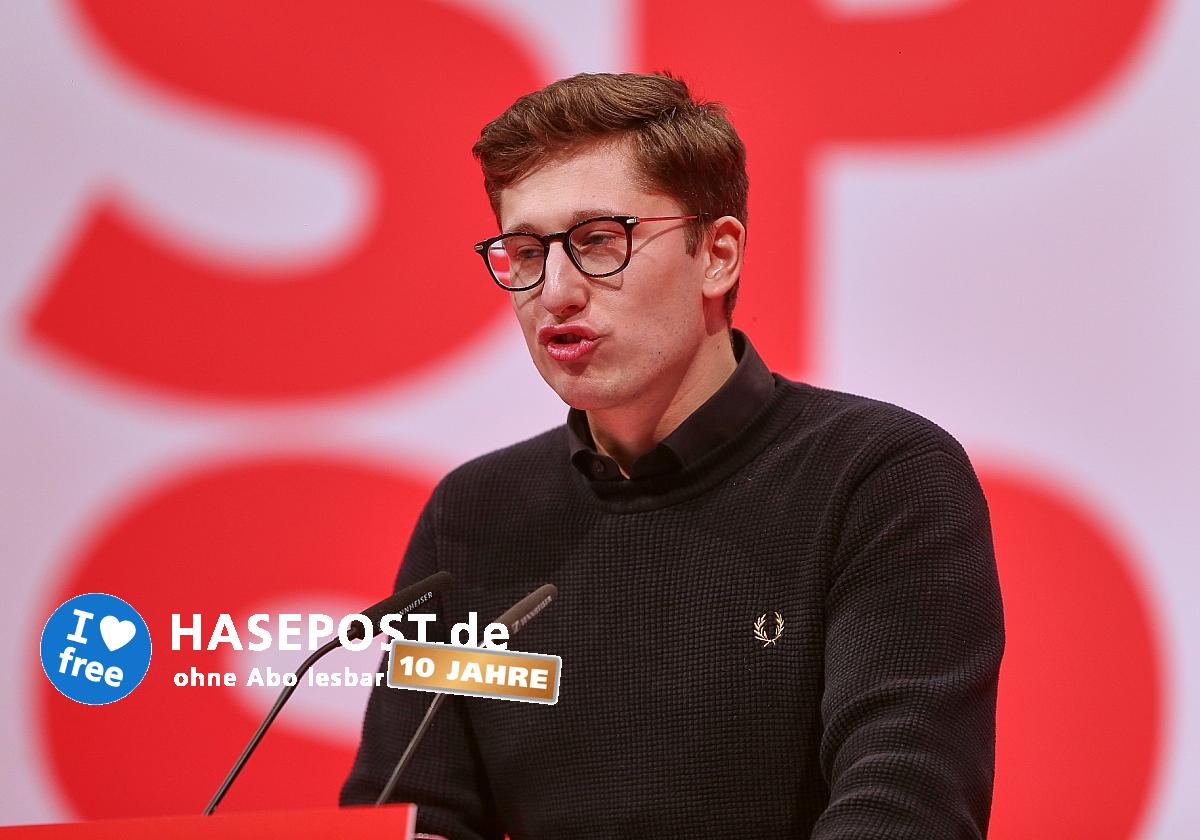SPD Young Generation Rejects Automatic Grand Coalition: Key Takeaways & Analysis
Editor’s Note: The SPD Young Generation has officially rejected automatic backing of a grand coalition. This article delves into the implications of this decision and its impact on German politics.
Why This Matters: The SPD Youth's Rejection of a Grand Coalition
The Social Democratic Party of Germany (SPD) youth wing's decision to oppose an automatic grand coalition with the CDU/CSU holds significant weight. This stance could drastically alter the post-election landscape and reshape the future direction of German politics. This rejection signals a potential shift in the party's overall strategy, emphasizing the growing influence of younger party members and their differing priorities compared to the older generation. The decision impacts coalition negotiations, policy direction, and public perception of the SPD. Understanding this rejection is crucial for anyone following German politics, economics, and social dynamics.
Key Takeaways
| Aspect | Description |
|---|---|
| Youth Rebellion | Challenges established party lines within the SPD. |
| Coalition Dynamics | Significantly impacts potential coalition partners and negotiations. |
| Policy Implications | Could lead to shifts in policy priorities, particularly on social issues. |
| Public Perception | Influences public opinion towards the SPD and its future direction. |
| Intra-Party Conflict | Highlights internal divisions within the SPD regarding coalition strategies. |
SPD Young Generation: No Automatic Grand Coalition Backing
The SPD's young generation has made a bold statement by rejecting automatic support for a grand coalition with the CDU/CSU. This decision, announced [Date of Announcement], marks a significant divergence from the traditional approach within the party and introduces a new level of uncertainty into the ongoing coalition negotiations. The youth wing argues that a grand coalition may stifle innovative policy and fails to address the key concerns of younger voters.
Key Aspects of the Rejection
- Emphasis on Progressive Policies: The youth wing champions more progressive policies on climate change, social justice, and digitalization, potentially incompatible with the CDU/CSU's more conservative stance.
- Desire for Fresh Approaches: They advocate for a departure from established political norms and a more collaborative, potentially less predictable, approach to coalition building.
- Increased Youth Influence: The decision highlights the rising influence of younger voters and party members within the SPD and the broader German political landscape.
Detailed Analysis of the Rejection
The SPD youth wing's decision isn't merely symbolic. It represents a generational shift within the party, forcing a reconsideration of long-held strategies. Their rejection stems from a belief that a grand coalition might compromise on crucial progressive policy goals. This contrasts with the more pragmatic approach of some senior party members who view a grand coalition as a stable, albeit potentially less ambitious, governing option. The move also potentially signals a willingness to explore alternative coalition possibilities, potentially with parties further to the left of the political spectrum.
Interactive Elements
The Role of Social Media in Shaping Youth Opinion
The SPD youth wing's stance is partly shaped by social media engagement, showcasing how online discussions influence political viewpoints. This includes increased awareness of climate concerns, social inequalities, and the perceived failings of traditional political structures. The rapid spread of information and the ability to connect with like-minded individuals have empowered young voters to demand a more active role in shaping the party's agenda.
Potential Impacts of the Rejection on Future Policy
The rejection of an automatic grand coalition could lead to several potential policy shifts. For example, a coalition including the Greens might prioritize stronger environmental policies, while a coalition with the Left Party could focus on social welfare reforms. These policy shifts could significantly influence the economic, social, and environmental trajectories of Germany.
People Also Ask (NLP-Friendly Answers)
Q1: What is the SPD Young Generation's rejection of a grand coalition?
A: It's a decision by the youth wing of the SPD to not automatically support a coalition government with the CDU/CSU, advocating for alternative options and prioritizing progressive policies.
Q2: Why is this rejection important?
A: It signals a potential shift in the SPD's strategy, increasing influence of younger members, impacting coalition negotiations, policy, and public perception.
Q3: How could this benefit Germany?
A: It may lead to more progressive policies on climate, social justice, and technology, depending on alternative coalition partners.
Q4: What are the challenges with this rejection?
A: It could lead to governmental instability, prolonged negotiations, and potentially weaker government formations.
Q5: What's next for the SPD?
A: Further negotiations, exploring alternative coalition partners, and a potential internal party debate on the future direction of the party.
Practical Tips for Understanding German Coalition Politics
- Follow key political figures: Pay attention to statements by leaders of different parties.
- Analyze party manifestos: Understand the stated policies and goals of each party.
- Monitor news from reliable sources: Stay informed through reputable news outlets.
- Engage in political discussions: Participate in informed discussions about the issues.
- Understand the German electoral system: Learn how coalition governments are formed.
Summary (Zusammenfassung)
The SPD Young Generation's rejection of automatic grand coalition support signifies a critical turning point in German politics. It underscores the growing influence of young voters, introduces uncertainty into coalition negotiations, and hints at potentially progressive policy shifts. This decision demands close monitoring as it could profoundly impact Germany's future.
Closing Message (Schlussbotschaft)
The SPD youth wing's decision is a clear call for change. It compels us to question traditional political norms and consider the evolving priorities of younger generations. What does this rejection mean for the future of German politics? Share your thoughts!
Call to Action (CTA)
Stay informed about the latest developments in German politics! Subscribe to our newsletter for updates and analysis. [Link to Newsletter Signup] Share this article with your network to spark discussion! [Social Media Sharing Buttons]

